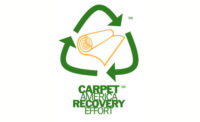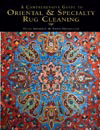California Carpet Differential Assessment Increases on April 1

CalRecycle directed Carpet America Recovery Effort (CARE) to increase the carpet differential assessment effective April 1, 2023. The increase is necessary to protect the health of the California Carpet Stewardship Program, including the financial stability of the collectors, processors, and recyclers. This CalRecycle directive follows several months of requests by CARE for CalRecycle approval of an assessment increase to extend program solvency.
CARE’s differential assessment plan, dictated by statute, is based on two factors: carpet material, as in broadloom vs. tile, and percent of post-consumer (PC) content, as in greater than or equal to 10 percent post-consumer content, and less than 10 percent post-consumer content. The new assessment amounts will replace the current amounts that came into effect on April 1, 2022:
- Broadloom with greater than or equal to 10% post-consumer carpet rises to 56 cents/square yard from 33 cents, a 70% increase.
- Broadloom with less than 10% post-consumer carpet rises to 58 cents/square yard from 35 cents.
- Carpet tile with greater than or equal to 10% post-consumer carpet rises to 71 cents/square yard from 48 cents, a 48% increase.
- Carpet tile with less than 10% post-consumer carpet rises to 73 cents/square yard from 50 cents.
Carpet retailers in the state are advised to implement immediately the point of purchase changes that are needed to collect the correct, updated assessment from customers. Carpet mills are responsible for advising retailers on which products qualify in terms of post-consumer content. CARE will continue to supply point of purchase material as well as training support materials for sales staff. Retailers are encouraged to visit the CARE website for the latest developments.
The California carpet stewardship legislation (AB 2398, 1159 and 729) is designed to find ways to incentivize the growth of carpet reclamation and recycling and still allow the market to work. The law (AB 2398) generates funding to meet its stated goals through the assessment on all carpet sold in California. California consumers pay the assessment when they buy carpet. Those monies then support CARE’s efforts, including subsidies paid to recyclers, grants to expand capacity and collection, technical assistance, market development and outreach, to increase carpet recycling in California.
The California Carpet Stewardship Program has seen extraordinary progress in recent years, despite economic and technological challenges, including a record recycling rate in 2022.
Looking for a reprint of this article?
From high-res PDFs to custom plaques, order your copy today!





.jpg?t=1690771780)
